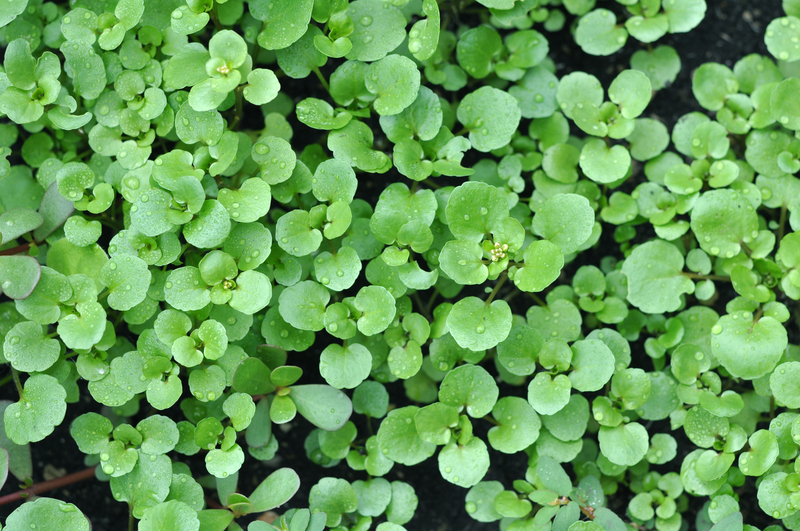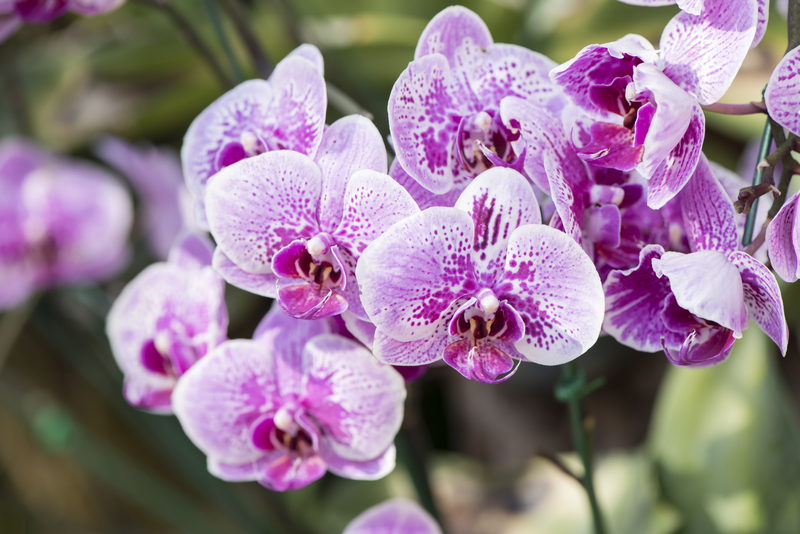Transform Your Garden with These 3 Weed Control Techniques
Posted on 05/06/2025
Transform Your Garden with These 3 Weed Control Techniques
Every passionate gardener dreams of a lush, vibrant, and thriving oasis. Yet, uninvited guests--pesky weeds--often disrupt those dreams, sucking nutrients, water, and sunlight away from your beloved plants. But don't fret! With the right weed control techniques, you can reclaim your garden and transform it into a lush haven. In this comprehensive guide, we'll explore three proven weed control methods that are easy, effective, and eco-friendly.
Why Controlling Weeds Is Essential
Weeds are more than just an eyesore. They actively compete for resources with your fruit, vegetables, and decorative plants. A robust weed management strategy can:
- Increase crop yield and plant health
- Minimize pest and disease outbreaks
- Enhance the appearance of your garden
- Reduce the need for chemical treatments
- Save you time and effort in the long run
Let's dive into three transformative weed control techniques that every gardener should know.

1. Mulching: Nature's Blanket for Weed Suppression
Mulching is one of the most effective and environmentally friendly weed control strategies available. By applying a thick layer of material over the soil surface, you deprive weed seeds of the light they need to germinate and grow. Mulch also retains moisture, regulates soil temperature, and improves soil structure.
Types of Mulch for Effective Weed Control
- Organic Mulches: Wood chips, straw, bark, compost, grass clippings, and shredded leaves. These materials decompose over time, enriching your soil with invaluable nutrients.
- Inorganic Mulches: Black plastic, landscape fabric, stones, or gravel. While these won't enrich your soil, they provide a durable, long-lasting weed barrier, ideal for pathways and ornamental areas.
How to Apply Mulch for Maximum Weed Management
- Clear the area: Remove existing weeds and debris before laying mulch.
- Lay down newspaper or cardboard: For extra weed suppression, place sheets over the soil before adding mulch.
- Spread mulch evenly: Apply a 2-4 inch layer, ensuring it covers bare soil completely. Avoid piling mulch against plant stems as this can lead to rot.
- Monitor and replenish: Organic mulches will break down over time, so replenish your mulch annually.
Pro tip: Avoid using weed-infested grass clippings or straw to prevent introducing new weed seeds into your garden!
2. Manual Weed Removal: The Tried-and-True Classic
While it may seem old-fashioned, manual weed removal remains one of the most reliable weed prevention techniques. With the right tools and approach, hand-weeding is not only effective but also therapeutic.
Best Times to Pull Weeds
- Shortly after watering or rainfall, when the soil is moist and loose
- In the early stages, when weeds are small and before they go to seed
- Regularly throughout the growing season, rather than allowing weeds to become established
Essential Tools for Weed Removal
- Hand weeder: Useful for deep-rooted weeds like dandelions
- Garden hoe: Perfect for shallow-rooted annual weeds in wide open beds
- Gloves: Protect your hands from thorns, stinging nettles, and blisters
- Wheelbarrow or bucket: For easy collection and disposal of weeds
Proper Technique for Effective Weed Management
- Grasp the weed close to the soil to get the entire root system.
- Disturb as little surrounding soil as possible to prevent bringing new weed seeds to the surface.
- Dispose of mature weeds (especially those with seeds) away from the compost pile.
Remember: Consistency is key. Even a weekly walk through your garden to spot and pull young weeds can prevent a larger invasion later!
3. Weed Barriers: Creating a Physical Defense
Weed barriers are physical obstacles that block weeds from reaching the surface. This weed prevention method is especially useful in long-term and low-maintenance gardens, vegetable beds, and landscaped pathways.
Popular Types of Weed Barriers
- Landscape Fabric: A woven material that allows water and air to pass through but blocks sunlight, stunting weed growth underneath.
- Plastic Sheeting: Highly effective for total weed exclusion but can inhibit water and air exchange. Best suited under gravel pathways, patios, and hardscape features.
- Cardboard & Newspaper: Affordable, biodegradable, and easy-to-source options for suppressing weeds, often used in combination with mulch.
How to Install a Weed Barrier for Weed-Free Gardening
- Prepare the soil by removing existing weeds and leveling the area.
- Lay your barrier material flat across the soil, overlapping edges by about 6 inches to prevent gaps.
- Secure the edges with landscape pins, stones, or by tucking under soil.
- Cover fabric or cardboard with 2-3 inches of mulch for added protection and improved aesthetics.
- Cut X-shaped openings to plant shrubs or perennials directly through the barrier.
Weed barriers are incredibly effective for future garden weed management, reducing the frequency and intensity of weeding needed each season.
Bonus Tips: Integrated Weed Management for Lasting Results
Combining several weed prevention methods is often the most effective way to keep your garden pristine. Here are a few extra strategies for comprehensive control:
- Plant densely: Close spacing of groundcovers, vegetables, or flowers will shade the soil and leave little room for weeds to sprout.
- Water carefully: Targeted irrigation, such as soaker hoses or drip systems, ensures water reaches your plants--not the weeds in nearby bare soil.
- Use cover crops: Fast-growing crops like clover or buckwheat can outcompete weeds during the off-season.
- Stay vigilant: Regularly inspect your garden, especially after storms or heavy rains that may bring buried weed seeds to the surface.
Common Weed Control Mistakes to Avoid
- Ignoring Early Growth: Allowing weeds to mature can lead to rapid spreading and more daunting removal tasks.
- Applying Mulch Too Thinly: Insufficient depth won't block light, giving weeds a chance to thrive.
- Using Contaminated Mulch: Materials containing weed seeds will only add to the problem.
- Neglecting Edges and Boundaries: Weeds often sneak in unnoticed from garden edges and fence lines. Give these areas regular attention.
Eco-Friendly Weed Control Solutions
Modern gardeners are increasingly interested in natural weed control strategies that minimize the use of chemical herbicides. Here are a few sustainable practices:
- Boiling Water: Pouring hot water directly onto weeds quickly kills them, though care should be taken to avoid desirable plants.
- Vinegar Solutions: Household vinegar (with higher concentrations of acetic acid) can desiccate weeds, but use sparingly and avoid splashing on nearby plants.
- Flame Weeders: These tools emit brief bursts of intense heat, damaging weed cells. They are best suited for walkways and driveways.
*Tip: Avoid persistent chemical herbicides to protect pollinators, pets, and beneficial soil organisms. Nature-friendly weed control is safer and often just as effective when combined with other techniques.*

Why Choose Multiple Weed Control Methods?
Weeds are notoriously adaptable. By using integrated weed management--a combination of mulching, physical removal, and weed barriers--you address the root causes, prevent new infestations, and maintain a clean, flourishing garden throughout the year. Variety is your ally in the battle for a beautiful landscape!
Transform Your Garden: Weed-Free, Effortlessly
Creating a weed-free garden isn't about Herculean effort or harsh chemicals--it's about being strategic and persistent. By embracing mulching, practicing manual weed removal, and installing weed barriers, you lay the groundwork for a healthy, thriving, and visually appealing outdoor space. Combine these approaches with vigilant monitoring and eco-friendly practices, and your garden will reward you with vibrant blooms, bountiful harvests, and peaceful enjoyment--all without being overrun by unwanted guests.
Ready to Transform Your Garden?
Implement these 3 weed control techniques today and watch as your garden transforms from a weed-challenged plot into a flourishing sanctuary. Your plants--and your back--will thank you!
- Start mulching vulnerable areas today.
- Dedicate 10 minutes a week to hand weeding.
- Plan your weed barrier installation for long-term protection.
With the right strategies, maintaining a weed-free garden is not just possible--it's truly transformative.

